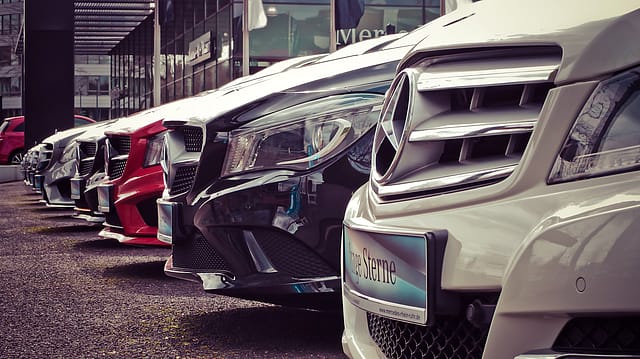Passenger car sales slide 11% in November
ADVERTISEMENT

Sales of passenger vehicles fell 0.84% in November from a year ago after seeing a marginal uptick through festive season sales in October, according to data released by the Society of Indian Automobile Manufacturers (SIAM) on Tuesday, indicating that demand continues to be muted.
Sales of passenger vehicles—which include cars, utility vehicles, and vans— fell to 263,773 from 266,000. Sales of passenger cars, the largest segment by volume, fell 11% to 160,306 units.
Overall, total sales of the industry fell 12.1% to 1,792,415 units.
The commercial vehicles segment—which includes light, and medium, and heavy vehicles—plummeted 14.98%. Sales of two wheelers posted a decline of 14.27% to 1,410,939 units.
Total production fell 1.41% to 2,336,711 units in November.
However, passenger cars export grew 17.6% to 411,470 units from 349,893 units a year ago.
The auto sector has been weighed down by a slowdown for more than a year caused by suppressed market sentiment due to the transition from Bharat Stage (BS) IV to BS VI emission standards, fuel price volatility, liquidity crunch, and a rise in insurance costs.
The country’s largest automaker Maruti Suzuki India suffered a 3.2% drop in domestic sales to 143,686 units in November from a year ago.
Japanese automaker Toyota registered a drop of 22% in sales. “We have consciously lowered the volume of vehicles sold to dealers to ensure lean inventory/avoid high market offers, we are adjusting our production to ensure we do not put any excess burden on our dealerships before the shift to BS VI in April 2020,” N. Raja, deputy managing director, Toyota Kirloskar Motor, said. “Customers are aware of the model year price rise in January and the significant price hike of diesel vehicles by 15-20% post BS VI transition. This pre-buying pull of BS IV vehicles has helped us in pushing retail sales and also enabling successful runout of products before shift to BS VI.”
Suzuki Motorcycles, however, clocked 23% sales growth last month. “Suzuki maintained the momentum of accelerated growth post-festive season... Considering consumer demand for pre-owned Suzuki vehicles, this month we also forayed into pre-owned two-wheelers business with the launch of ‘Best Value’ showrooms in Bangalore, Aizawl, and Surat. This will enhance Suzuki’s participation in the entire life cycle of the products,” Koichiro Hirao, managing director, Suzuki Motorcycle India, said.
Honda Cars India, too, registered a 25% drop in domestic retail sales. Sales declined from 50,470 units in November 2018 to 38, 057, last month. Rajesh Goel, senior vice president and director, sales and marketing, Honda Cars India, said, “Our sales numbers are better than our plan for the month. We are in the last leg of our BS IV runout and accordingly supplies had to be optimised as we progress towards BS VI transition model by model sequentially.”
Newer launches like MG Hector and Kia Seltos have seen a continued growth momentum—especially because they have no year-on-year sales benchmark to meet. In November 2019, MG Motor sold 3,239 units of Hector while Kia Motors sold 14,005 units of Seltos.
“The sustained momentum highlights how our debut offering in India continues to win the hearts of our customers. Most of the expansion in the next few months will be on dedicated service outlets,” Rakesh Sidana, director (sales), MG Motor India, said.
Newer launches like MG Hector and Kia Seltos have seen a continued growth momentum—especially because they have no year-on-year sales benchmark to meet. In November 2019, MG Motor sold 3,239 units of Hector while Kia Motors sold 14,005 units of Seltos.
“The sustained momentum highlights how our debut offering in India continues to win the hearts of our customers. Most of the expansion in the next few months will be on dedicated service outlets,” Rakesh Sidana, director (sales), MG Motor India, said.